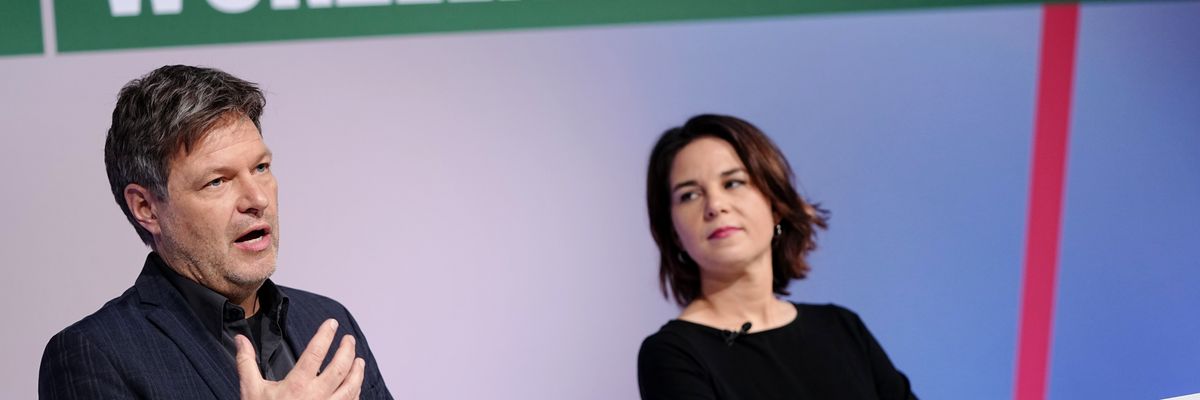Two months after the German federal elections of September 26th, a governing coalition has been formed: Social Democrat Olaf Scholz will succeed Angela Merkel as Chancellor; Christian Lindner of the pro-business Free Democrats will take over the finance ministry; and Green Party co-leader Annalena Baerbock will become foreign minister.
Advocates of realism and restraint should greet this last appointment with dismay. Given Baerbock’s limited foreign policy experience and past statements, including support for arming Ukraine and for humanitarian interventions generally, she may become an obstacle to the policies of detente and strategic autonomy currently being pursued by French president Emmanuel Macron. She may also emerge as an opponent of U.S. president Joe Biden’s stated policy of “stability and predictability” with Russia.
Baerbock, a 40-year-old diplomatic novice, had been the Green Party candidate for chancellor in the German federal election. Worryingly, and in a break with recent German government policy, she has consistently espoused interventionist views that one leftist American magazine has described as a combination of “aloof complacency, ignorance and aggressiveness.”
This stands in contrast to the foreign policy of the outgoing Chancellor Angela Merkel who, back in 2015, helped put the brakes on president Obama’s brief flirtation with the idea of arming Kiev. Merkel has also been an instrumental player in the four-power Normandy format which resulted in the Minsk Protocol.
In another troubling sign, Baerbock’s Green Party co-leader Robert Habeck, who will serve as German vice chancellor as well as manage the government’s climate and economic and energy ministries, has also been an outspoken supporter of sending arms to Ukraine.
Retired U.S. Army Col. Douglas Macgregor, an expert on U.S.-German relations, tells me that in his view, Baerbock is “a crusader, the type of person you see in Washington all the time, the type that proclaims, ‘I am changing the world. I'm going to make everything new and different.’ And this would be a big break from the past for the German foreign office.”
Macgregor, who was nominated by President Trump to be ambassador to Germany, but ultimately served as senior advisor to the secretary of defense in the final months of the administration, sees a lack of strategic empathy within Baerbock's liberal internationalism.
According to Macgregor:
“In the old foreign offices of Germany, people spent a great deal of time trying to understand the interests that shaped behavior in the international environment. They’d ask: What are Russia's interests? What are the interests in Prague? What are the interests in Paris, in London? That's a very different approach to foreign affairs that we've heard from Ms. Baerbock, who seems to have no sense of the interests that drive things in these major capitals. Everything is about reshaping the world to conform to some sort of ideologically pure and good and morally upright picture that always fails in the end, frankly.”
Given the high level of tension between Russia and the West, Baerbock’s moralizing approach seems ill-suited to the moment, not least because it discourages both sides from pursuing diplomacy. And not pursuing diplomacy would seem a grave mistake, given that the balance of power in the region overwhelmingly favors the Russian military.
According to Macgregor, the Russians “are telling us that unless we are willing to sit down and come to arrangements that recognize the limits of our interests and theirs, which essentially means no more expansion of NATO beyond the current limits in the East, then they are going to take military action.”
This becomes all the more of a concern now that Germany has a new chief diplomat with seemingly little interest in diplomacy.
















